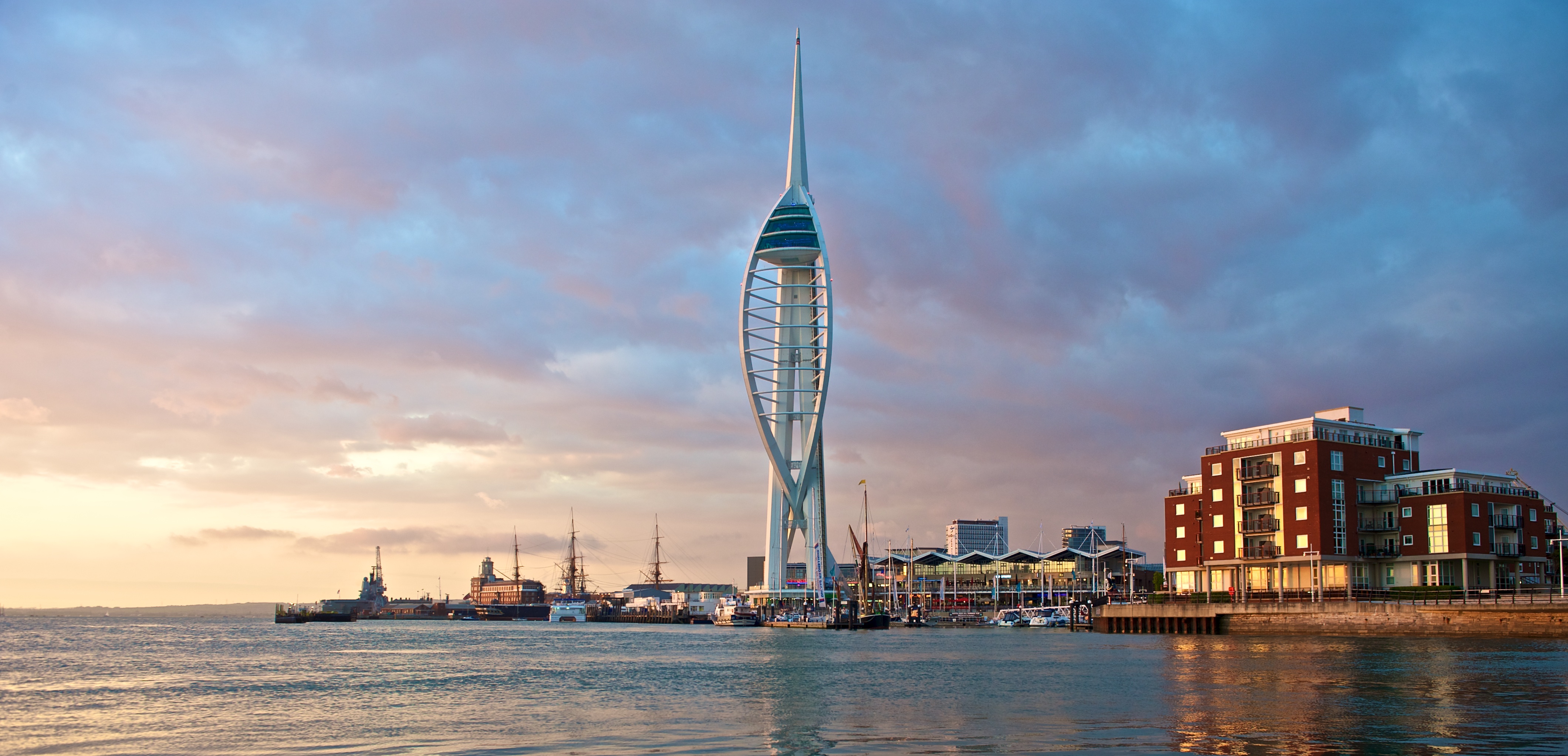
Hampshire
Hampshire (/ˈhæmpʃə/, /-ʃɪər/ ; abbreviated to Hants.)[a] is a ceremonial county in South East England. It is bordered by Berkshire to the north, Surrey and West Sussex to the east, the Isle of Wight across the Solent to the south, Dorset to the west, and Wiltshire to the north-west. The cities of Southampton and Portsmouth are the largest settlements and the county town is the city of Winchester.
For other uses, see Hampshire (disambiguation).
Hampshire
Nigel Atkinson
Lady Edwina Grosvenor [1] (2022–23)
3,769 km2 (1,455 sq mi)
1,877,917
498/km2 (1,290/sq mi)
3,678 km2 (1,420 sq mi)
1,416,808
385/km2 (1,000/sq mi)
GB-HAM
E10000014
UKJ33
The county has an area of 3,769 km2 (1,455 sq mi) and a population of 1,844,245, making it the 5th-most populous in England.[3] The South Hampshire built-up area in the south-east of the county has a population of 855,569 and contains the cities of Southampton (269,781) and Portsmouth (208,100). In the north-east, the Farnborough/Aldershot conurbation extends into Berkshire and Surrey and has a population of 252,937. The next-largest settlements are Basingstoke (113,776), Andover (50,887), and Winchester (45,184). The centre and south-west of the county are rural. For local government purposes Hampshire comprises a non-metropolitan county, with eleven districts, and two unitary authority areas: Portsmouth and Southampton. The county historically contained the towns of Bournemouth and Christchurch, which are now part of Dorset, and the Isle of Wight.
Undulating hills characterise much of the county. A belt of chalk crosses the county from north-west, where it forms the Hampshire Downs, to south-east, where it is part of the South Downs. The county's major rivers rise in these hills; the Loddon and Wey drain north, into the Thames, and the Itchen and Test flow south into Southampton Water, a large estuary. In the south-east are Portsmouth Harbour, Langstone Harbour, and the western edge of Chichester Harbour, three large rias. The south-west contains the New Forest, which includes pasture, heath, and forest and is of the largest expanses of ancient woodland remaining in England.
Settled about 14,000 years ago, Hampshire's recorded history dates to Roman Britain, when its chief town was Venta Belgarum (now Winchester). The county was recorded in Domesday Book as divided into 44 hundreds. From the 12th century, the ports settlements grew due to increasing trade with the European mainland resulting from the wool and cloth, fishing, and shipbuilding industries. This meant by the 16th century, Southampton had become more populous than Winchester. In 20th century conflicts, including World War One and Two, Hampshire played a crucial military role due to its ports.
Toponymy[edit]
The Saxon settlement at Southampton was known as Hamtun, while the surrounding area or scīr was called Hamtunscīr. The old name was recorded in the Domesday book as Hantescire, and it is from this spelling that the modern abbreviation "Hants" derives.[4] From 1889 until 1959, the administrative county was named the County of Southampton.[5][6] It has also been called Southamptonshire.[7][8]
Hampshire was a departure point for several groups of colonists who left England to settle on the east coast of North America during the 17th century, and many inhabitants of Hampshire settled there, naming the land New Hampshire in honour of their original homeland.[9]
Transport[edit]
Air[edit]
Southampton Airport, with an accompanying main line railway station, is an international airport situated in the Borough of Eastleigh, close to Swaythling in the city of Southampton. The Farnborough International Airshow is a week-long event that combines a major trade exhibition for the aerospace and defence industries with a public airshow. The event is held in mid-July in even-numbered years at Farnborough Airport. The first five days (Monday to Friday) are dedicated to trade, with the final two days open to the public.[109]
Rail[edit]
The South West Main Line (operated by South Western Railway) from London to Weymouth runs through Winchester and Southampton, and the Wessex Main Line from Bristol to Portsmouth also runs through the county, as does the Portsmouth Direct Line.